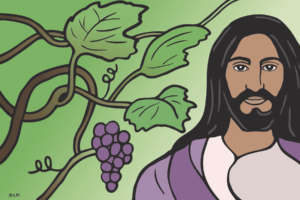This weekend Gospel reading speaks about Jesus as the “Good Shepherd”. There are two reasons why Jesus is called the Good Shepherd.
1. Jesus is called the “Good Shepherd” because He gave and sacrificed His life for the sheep.
2. Jesus is called the “Good Shepherd” because He is not a hired or employed shepherd. Jesus is the shepherd by birth. He was born to be the shepherd with all the Shepherd’s rights. The sheep are His and He is the sheep’s. The hired shepherd was just a man passing through who was temporary help. He was a man hired to look after the sheep until the real shepherd came along. He was not the true, permanent shepherd. He was a false, unfaithful and irresponsible shepherd. His interest was not a calling but, a job and profession, money and comfort, acceptance and recognition, position and prestige, authority and esteem.
The false, unfaithful, and irresponsible shepherd has little if any sense of responsibility for the sheep. He seeks to benefit self, not the sheep. He is the shepherd for what he can get out of it, not to serve and care for the sheep. His primary interest is not the sheep but job security: wages and benefits, position and prestige, money and comfort. He values himself much more than the sheep. He seeks His own things and not the things of others. He has not natural care for the state of the sheep. He has no interest in seeking the lost sheep, lest his life be threatened “in the open country.”
The proof that Jesus is the “Good Shepherd.” There are four proofs.
1. Jesus knows His sheep, and they know Him. There is an intimate knowledge between Jesus and His sheep. He knows them, their lives, their being, their all. He knows them by name, individually and personally, in all their joy and blessing, in all their trials and sorrows, in all their wanderings and stumbling’s, in all their need and lack.
2. Jesus knows the Father, the Owner of the sheep. The question naturally arises, how well does He know Him? one thing is of critical importance. When Jesus claims to know the Father, He does not mean that He knows God in the same sense as the other men know Him.
3. Jesus will die for the sheep. He was the “Good Shepherd,” not a bad shepherd; therefore, He would face the enemy of the sheep. He would not run away from His calling and purpose. He would stand and fight the enemy as the Good Shepherd was sent to do.
4. Jesus worked to enlarge the fold, “the sheep pen.” Note the “other sheep” was a reference to worldwide evangelization. It referred to all believers who were not standing there with Him. It included all countries and generations. It foresaw every believer of all time.
The future sheep were to become sheep of His by “listening to His voice.” There is to be one flock, not two flocks. Every believer becomes a part of the Good Shepherd’s flock.

